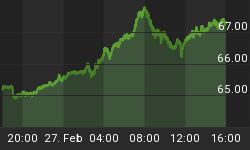Accounting giant Deloitte and Chicago-based identity management firm Attest have announced their cooperation in a plan to offer blockchain-backed digital IDs for government clients, according to a press release.
Attest already has two digital identification services on the market, its basic wallet and enterprise level wallet. The tools allow consumers to protect and securely share personal data with governments and businesses. But with Deloitte’s expertise in the blockchain world, the new partnership could be the beginning of a new world of digital identity.
Cab Morris, co-founder and CEO of Attest noted, "Combining government's robust identity verification infrastructure with a platform engineered for security, privacy and scale can also unlock tremendous value for both citizens and businesses outside of government. A government-issued digital identity has the potential to reduce costs and risk for businesses in all industries, while also providing citizens with greater security, privacy and control over personal data."
Marc Mancher, principal, Deloitte Consulting LLP, and government and public services practice's automation service business leader, explained further, "Blockchain requires a digital credential and in government, requiring a digital credential gets complicated pretty quickly,” adding, "Attest brings a set of solutions to help address this issue of digital credentials, making the use of solutions that require that digital identity more appealing technology for government clients."
Though Deloitte and Attest are targeting government clients in their latest blockchain identification pilot, they’re certainly not the first tech giants to jump onto the idea.
IBM’s Blockchain ID
In late October, IBM and Visa also revealed their intentions to create a business-to-business system for blockchain payments.
The project, called B2B Connect, will create a digital identity for financial institutions, allowing them to make secure cross boarder payments. Utilizing the Hyperfabric Ledger framework, the system will reportedly tokenize vulnerable data, including bank details and account numbers.
“B2B Connect’s digital identity greatly reduces the opportunity for fraud that might otherwise exist with checks, ACH and wire transfers today, while also helping companies remain compliant as part of the regulated financial ecosystem,” Kevin Phalen, global head at Visa Business Solutions, explained.
The Pros and Cons of Blockchain ID
Blockchain identification offers a number of solutions to the growing challenges of an increasingly connected world. It can reduce fraud, provide a more secure digital landscape for online purchases and interactions, and even help create a new start for migrants or refugees who may not have an ID. Related: Venezuela Re-Launches State-Sponsored Crypto
But it also opens up a whole world of other, more sinister, possibilities. Do we really want our governments to be able to keep *that* close of an eye on us? With blockchain technology, every transaction is auditable, traceable, and trackable.
There are already concerns of unfair taxation policies, and a digital identity on the blockchain could make that inescapable.
While the benefits are clear, there must be some thought in place about how we will handle the full spectrum of problems that might arise before jumping right into this new tech.
By Michael Kern via Crypto Insider
More Top Reads From Safehaven.com:
















